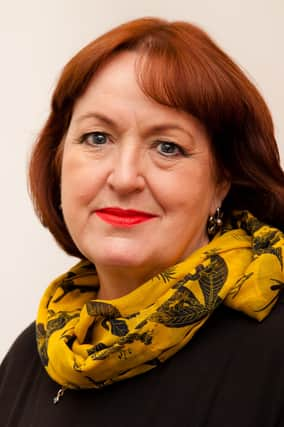Make the bed, light the light, guess who won’t be going out tonight? - Lesley McLeod


The balance of housework still falls disproportionately on women. I know you can’t extrapolate the specific from the wildly general and there are many men, maybe many more than in former generations, who do more than their half-share. But still, in homes up and down the country, the greater burden of domestic responsibilities falls to women.
And it isn’t just the work. It’s the emotional load with its common refrain: I have to ask, it’s not that he won’t, but he just doesn’t see what needs to be done.
Advertisement
Hide AdAdvertisement
Hide AdEffectively, many women manage their homes and families. They don’t just cook the food, make the beds, sort out the washing. They organise the homework, the packed lunches, the sports kit.
They make sure there’s money for the window cleaner, save up for birthdays and holidays, and often do this all over again, acting as carers for elderly relatives – not always their own.
And then they go to work.
I often wonder if nominative determinism helped me get on. I’ve sometimes reached the interview before anyone realised, by virtue of an androgynous name, I was female at all. Don’t laugh! Someone confessed, just a couple of months ago, that he came to a meeting with me expecting to be greeted by a bloke.
I have always worked in male-dominated workplaces – well, dominated at least at senior levels. I work for the Association for Project Safety (APS) and our membership is skewed nine-to-one, male to female. Hardly surprising in construction.
It was more of a shock to realise many girls opt out of careers in the sector before they even go to school. It just shows that, improving gender balance in business, means we are up against something very ingrained indeed.
And not because women are, necessarily, downtrodden. The sad fact is that sisters are also sometimes doing it for themselves.
I have struggled with feminism. I believed if I could get on, anyone could. I thought that endeavour, education and encouragement meant it was just a matter of time before things finally equalled out. I now believe I was wrong.
Let me tell you what, finally, opened my eyes.
It’s the issue of networking.
Over the last year APS, and I am sure other organisations too, have faced calls to get back, as soon as possible, to face-to-face meetings.
Advertisement
Hide AdAdvertisement
Hide AdLet’s ignore that online webinars allowed greater sharing of skills and experience. That, instead of events reaching around 1,500 people a year, we’ve been able to welcome over 16,000 through our virtual doors. Or that people in Stornoway have been able to chat to members in Swindon. Not even that we’ve saved money and still been able to secure the time of more and better speakers because they can manage an hour on Zoom but couldn’t take a day out to go to Sheffield
Cards on the table: my issue with networking is that I see it as a breeding ground for preferment based not on what you know, but who you know. And it, unintentionally, excludes many women.
It’s not the obvious boys’ club element of things – although that may play a part. I’ve had well-meaning men promise to be more welcoming and less chauvinistic. Bless!
It is where household management comes in.
If, as a country, we’re serious about seeing more women taking up senior positions, we need to address the fundamental fact that, for years, the single greatest factor allowing a man to advance by working his contacts is that, somewhere in the background, someone else had to stay at home, feeding his children, making his bed and washing his socks.
Lesley McLeod, CEO, Association for Project Safety
Comments
Want to join the conversation? Please or to comment on this article.